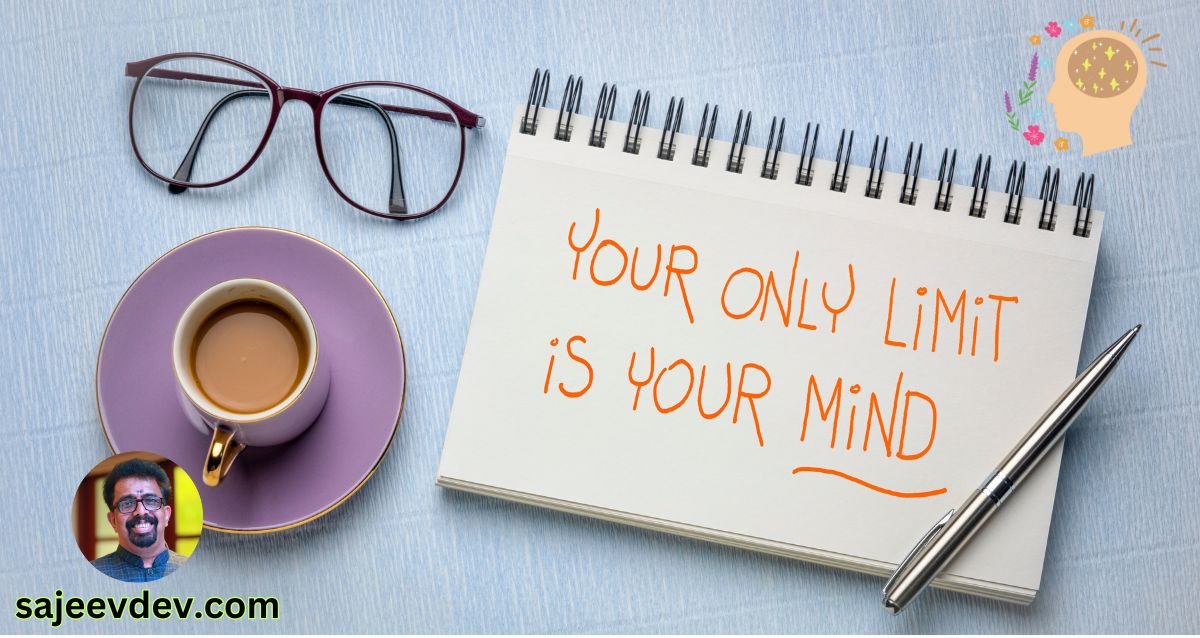The Power of Mindset
The concept of mindset plays a crucial role in shaping our beliefs, perceptions, and ultimately our reality. A mindset refers to the deeply ingrained attitudes and thought patterns that govern how we interpret experiences and respond to challenges. It serves as a lens through which we view the world, influencing our behavior, motivation, and emotional responses. Understanding the power of mindset is essential, as it can either empower us to achieve our goals or constrain us with self-doubt and limiting beliefs.
Research in psychology underscores the significance of a positive mindset. It suggests that individuals who embrace a growth mindset—believing that talents and abilities can be developed through dedication and hard work—tend to achieve higher levels of accomplishment. Conversely, those with a fixed mindset view their abilities as static, leading to a fear of failure and a reluctance to embrace new challenges. This dichotomy emphasizes the importance of cultivating a mindset that encourages resilience and adaptability.
Additionally, the way we think about ourselves and our potential affects our emotional well-being. Negative thought patterns can create a cycle of self-sabotage, where individuals hold themselves back from pursuing opportunities due to fears of inadequacy. On the other hand, fostering a positive self-image and challenging these limiting beliefs can lead to greater self-confidence and a more fulfilling life. The journey toward achieving personal growth starts with recognizing the power of our thoughts and the impact they have on our daily actions.
As we delve deeper into the relationship between mindset and reality, it becomes clear that the beliefs we hold about ourselves play a pivotal role in shaping our experiences. By actively challenging and reshaping these beliefs, we not only change our perspective but also pave the way for personal transformation and success.
Understanding Limiting Beliefs
Limiting beliefs are intrinsic convictions or assumptions that individuals hold about themselves, others, or the world around them, which hinder personal growth and potential. These beliefs often stem from past experiences, societal conditioning, or pervasive negative self-talk. For instance, a person may believe they are not capable of succeeding in their career due to a past failure. This belief can become an unshakeable barrier that prevents them from pursuing new opportunities or taking calculated risks.
Often, limiting beliefs manifest as self-doubt and can create a cycle of negativity that reinforces the belief itself. Take, for example, someone who thinks, “I will never be good enough to pursue my passion.” This thought may stem from a critical remark made during childhood, leading to a broader negative dialogue that echoes through their adult life. Such beliefs, though seemingly innocuous at first, can severely constrict one’s worldview and limit potential achievements.
Additionally, societal conditioning plays a substantial role in the development of limiting beliefs. These beliefs can come from media portrayals, cultural stereotypes, or general societal expectations that dictate what is deemed achievable or acceptable. A prime example is the pervasive belief that certain professions are suitable only for specific genders or social classes. These imposed beliefs can greatly influence an individual’s aspirations, ultimately stunting their growth and creativity.
Recognizing and understanding limiting beliefs is crucial for personal development. By identifying these mental barriers, individuals can begin to challenge their validity and replace them with empowering affirmations that promote growth and self-efficacy. The journey to break free from limiting beliefs requires introspection and a willingness to embrace change, setting the foundation for a more fulfilling and successful life.
The Connection Between Thoughts and Reality
Understanding the connection between thoughts and reality is crucial in shaping our experiences and outcomes. Psychology and neuroscience provide a wealth of insights into how our beliefs and thought patterns influence our actions and, consequently, the realities we create for ourselves. The premise that our thoughts can significantly impact our experiences is embodied in numerous psychological theories, including cognitive behavioral therapy (CBT). This approach posits that our cognitive processes, such as perceptions and beliefs, directly affect our emotions and behaviors, creating a feedback loop that manifests in our reality.
Neuroscientific research has further elucidated this relationship by revealing how brain patterns associated with certain thoughts can activate emotional responses and influence decision-making processes. For instance, when an individual harbors negative beliefs about their abilities, the neural pathways associated with anxiety and self-doubt become more pronounced, affecting their performance and likelihood of success. Conversely, fostering positive thoughts can lead to enhanced motivation and resilience, facilitating greater achievements.
Additionally, the concept of the placebo effect demonstrates the power of belief in shaping our reality. Individuals who anticipate a positive outcome may experience measurable benefits, highlighting the profound impact that mindset can have on physical and psychological well-being. This connection emphasizes that our perceptions do not merely reflect our experiences but actively contribute to their formation.
Thus, cultivating a mindset geared towards optimism and growth can be instrumental in altering one’s reality. By consciously choosing to shift thought patterns, individuals may unlock new possibilities, enhance their emotional health, and engage in more fulfilling experiences. Ultimately, understanding the interplay between thoughts and reality empowers individuals to take charge of their lives, transforming limiting beliefs into expansive opportunities.
Transforming Limiting Thoughts through Real-Life Examples
The power of the human mind is often underestimated, particularly its ability to reshape our beliefs and, consequently, our realities. Numerous individuals have embarked on remarkable journeys of transformation, overcoming their limiting thoughts to embrace more empowering beliefs. One such case is that of Sarah Johnson, a former corporate employee who constantly wrestled with feelings of inadequacy. Sarah’s belief that she lacked the skills necessary for success held her back from pursuing her dream of starting a business. Through dedicated self-reflection and cognitive behavioral techniques, she gradually shifted her mindset. Instead of fixating on her perceived shortcomings, Sarah began to focus on her strengths. She sought mentorship, enrolled in workshops, and ultimately launched a thriving consulting firm. Sarah’s story exemplifies how individuals can dismantle their limiting thoughts and realize their true potential.
Similarly, Michael Rodriguez faced the debilitating belief that he was not fit enough to participate in competitive sports. This self-imposed limitation stemmed from past experiences and fear of failure. However, after joining a local athlete community, he witnessed firsthand the varied backgrounds of fellow competitors. Inspired, he decided to redefine his identity through consistent training and positive self-talk. Michael learned that persistence and determination far outweighed his earlier beliefs about competency. Over time, he not only participated in a local marathon but secured a commendable finish. His narrative powerfully illustrates how changing one’s perspective can lead to profound personal achievements.
These case studies serve as invaluable reminders that limiting thoughts often act as barriers to success. By sharing such experiences, we provide motivation for others who may find themselves entangled in similar mental struggles. Readers are encouraged to reflect on their own beliefs and consider the transformative potential of adopting a more empowering mindset. The journey to success starts with the understanding that one’s mindset not only shapes individual realities but can also pave the way for new opportunities.
Practical Steps to Challenge Limiting Beliefs
Identifying and addressing limiting beliefs is essential for personal growth and transformation. One effective method to challenge these beliefs is through cognitive restructuring, a cognitive-behavioral technique that involves recognizing negative thought patterns and reframing them into more positive and realistic perspectives. To start, it is crucial to become aware of the specific beliefs that hold you back. Ask yourself probing questions: What beliefs do I hold about my abilities? How do these beliefs affect my daily life? By bringing these thoughts to the surface, you can begin to deconstruct them.
Another powerful technique is journaling. This practice encourages self-reflection, allowing you to capture your thoughts and feelings on paper. Dedicate a section of your journal to explore your limiting beliefs. Write down instances where these beliefs have influenced your decisions or actions negatively. By documenting your experiences, you create a tangible record that can help identify patterns and triggers associated with your limiting beliefs. Furthermore, consider writing a counter-narrative. For each limiting belief, formulate a positive affirmation or alternative viewpoint. This exercise reinforces the idea that your mindset can shape your reality.
Visualization is another invaluable tool in overcoming limiting beliefs. Visualize yourself successfully achieving your goals without the constraints of your current beliefs. This mental exercise creates a powerful image in your mind, reinforcing the belief that change is possible. Take time each day to engage in this practice; it can significantly impact your motivation and mindset over time. Utilize all these strategies—cognitive restructuring, journaling, and visualization—to challenge your limiting beliefs effectively and start transforming your reality into a more empowering one. Realize that breaking free from these beliefs is an ongoing process; consistency is key to fostering a healthier mindset.
Cultivating a Growth Mindset
Adopting a growth mindset is fundamental in overcoming limiting beliefs that hinder personal development. The concept, popularized by psychologist Carol Dweck, revolves around the understanding that abilities and intelligence can be developed through dedication and hard work. This mindset encourages individuals to view challenges as opportunities for growth rather than insurmountable obstacles. When one embraces a growth mindset, they open themselves up to learning experiences that foster resilience and adaptability.
One key principle of a growth mindset is the embrace of challenges. Rather than shying away from difficulties, individuals with this perspective actively seek out challenges, understanding that such experiences can lead to significant growth and improvement. This attitude fosters a love for learning, where the process becomes valuable in itself, rather than focusing solely on the outcome. It is through facing challenges that individuals can develop new skills and insights that contribute to their overall success.
Additionally, persistence in the face of setbacks is a hallmark of a growth-oriented individual. The ability to maintain effort despite encountering obstacles is crucial. Instead of perceiving failure as a reflection of personal inadequacy, those with a growth mindset recognize it as a necessary step on the journey toward mastery. This perspective allows them to analyze their setbacks, draw valuable lessons from them, and continue moving forward with determination.
Finally, viewing effort as the pathway to mastery is integral to cultivating a growth mindset. Recognizing that effort is not merely a means to an end but a critical component of the learning process encourages individuals to invest time and energy into their pursuits. In doing so, they not only refine their skills but also develop a deeper understanding and appreciation of their abilities. Through cultivating a growth mindset, individuals can transcend limiting beliefs and pave the way for greater success in their personal and professional lives.
The Role of Affirmations and Positive Self-Talk
Affirmations and positive self-talk have emerged as powerful tools capable of reshaping an individual’s mindset and ultimately influencing their reality. These techniques serve to reinforce supportive beliefs and instill confidence, making it easier for individuals to navigate challenges and pursue their goals. The practice of using affirmations involves creating positive statements that resonate with one’s aspirations, which can help rewire the subconscious mind to adopt constructive thought patterns.
Creating effective affirmations requires introspection and clarity regarding one’s goals. These statements should be specific, present tense, and personal, encapsulating not merely what one desires but also the feelings associated with achieving those desires. For instance, instead of stating, “I will be confident,” a more impactful affirmation would be, “I am confident and capable in all situations.” This shift in wording fosters a sense of immediacy and ownership over one’s self-perception.
Furthermore, the practice of engaging in positive self-talk complements the use of affirmations. It involves consciously directing one’s internal dialogue towards supportive and constructive thoughts, particularly during moments of self-doubt or adversity. When negative thoughts arise, reframing them to highlight strengths and capabilities can significantly enhance resilience. For example, transforming the thought “I can’t handle this” into “I am equipped to learn and grow from this experience” can fundamentally change one’s emotional response and outlook.
This combination of affirmations and positive self-talk not only aids in reinforcing self-belief but also cultivates a mindset that welcomes growth and adaptability. By continuously integrating these practices into daily routines, individuals can create a conducive environment for personal development, which ultimately shapes a more positive and empowered reality. Furthermore, consistently monitoring one’s inner dialogue ensures that negative conditioning does not undermine progress, enhancing overall mental well-being.
Accepting Failure as a Stepping Stone
Failure is often viewed with disdain, evoking feelings of fear and anxiety. This common perspective can create significant barriers, especially when individuals consider stepping outside of their comfort zones. Understanding failure as a natural part of the growth process is essential. Rather than perceiving it as a definitive endpoint, it should be embraced as an invaluable learning experience that informs future actions and decisions.
Throughout history, many successful individuals have thrived after experiencing failure. They acknowledge that the lessons derived from setbacks often lay the foundation for future success. This attitude shift allows one to approach challenges with an open mind, where the fear of failure does not paralyze but rather motivates. By reframing failure as feedback, individuals can cultivate resilience and adaptability, essential traits for personal and professional development.
Moreover, the act of stepping outside of one’s comfort zone can be daunting. The fear of not succeeding can deter individuals from pursuing new opportunities. However, it is crucial to recognize that growth occurs in moments of discomfort. Each failed attempt is an opportunity to analyze what went wrong and adjust the approach accordingly. This iterative process fosters a deeper understanding of one’s capabilities, ultimately leading to enhanced confidence and competence.
In this light, embracing failure becomes a transformative journey. It invites individuals to redefine their relationship with risks, encouraging a more exploratory mindset. When individuals accept that failure is an integral part of life, they become more inclined to take calculated risks. This attitude not only enhances their problem-solving skills but also propels them towards their goals with greater determination. Embracing failure as a stepping stone can significantly enrich one’s journey, marking the beginning of a powerful transformation in both personal and professional realms.
Your Mind is the Limitless Frontier
The exploration of our mindset reveals a profound truth: the only constraints we encounter are largely self-imposed. Throughout this discussion, we have examined various facets of how thoughts and beliefs shape our experiences and ultimately dictate our realities. It is evident that a fixed mindset can hinder progress, while a growth-oriented perspective opens doors to new opportunities and experiences. Those who cultivate a mindset rich in possibilities find themselves better equipped to navigate the challenges life presents, turning obstacles into stepping stones toward success.
Moreover, embracing an attitude that welcomes change and fosters resilience can significantly impact an individual’s journey. By challenging limiting beliefs and reframing negative thoughts, one can create a more favorable environment for growth. Psychological research supports the assertion that individuals who practice positive affirmations and visualizations are more likely to reach their goals, highlighting the importance of mental frameworks in achieving success.
As we navigate through life, it becomes increasingly important to recognize the power of our thoughts. The journey toward personal development starts with the conscious decision to shift our perspectives and break free from the mental confines that restrict our potential. Engaging in actionable practices, such as mindfulness, journaling, and setting achievable goals, can be instrumental in transforming our mindset.
In conclusion, the mind is indeed a limitless frontier. By understanding the influence of our thoughts, we can empower ourselves to overcome barriers and embrace a broader spectrum of possibilities. Encourage yourself to challenge the status quo and take proactive steps in reshaping your mindset. The road to a fulfilling life lies in your ability to think beyond boundaries, allowing you to discover the true extent of your capabilities.









